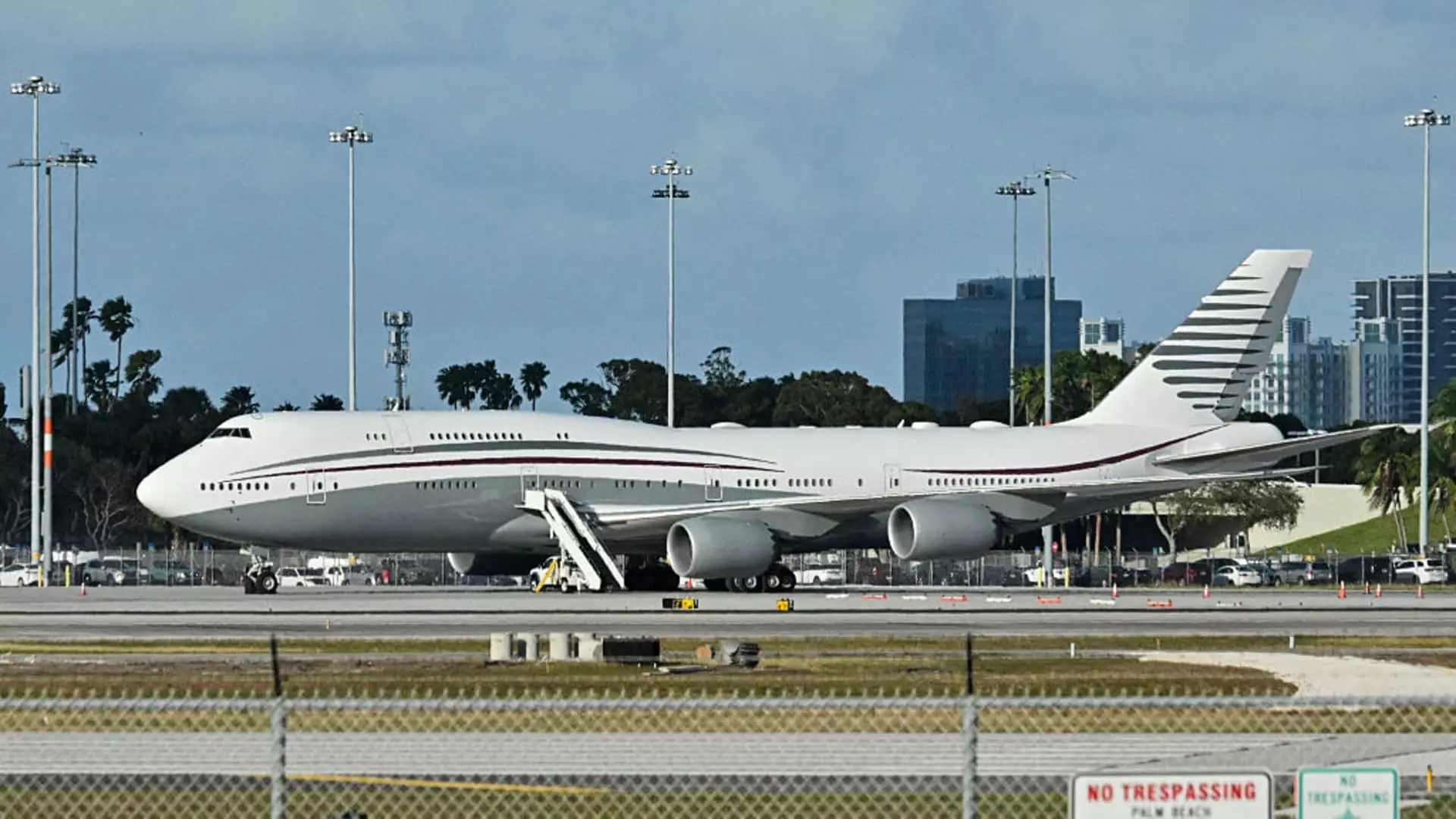The recent acceptance of a Boeing 747 by the Trump administration, a lavish gift from Qatar, has stirred a maelstrom of controversy, spotlighting the ethically dubious intersection of politics and diplomacy. On one hand, the transaction can be viewed as a generous act meant to bolster ties with a strategic ally; on the other, it represents a worrisome precedent that could potentially compromise the integrity of the presidency and, by extension, the values underpinning American democracy. The Pentagon’s Defense Secretary, Pete Hegseth, proclaimed adherence to “all federal rules and regulations,” yet the broader implications of such a gift suggest a cavalier attitude towards the ethical frameworks that govern the highest levels of government.
One could argue that this acceptance is not merely a transactional act but rather a manifestation of a deeper erosion of political norms. The optics of a president receiving what could be perceived as a bribe from a foreign government raise significant eyebrows. Instead of heralding an era of transparency and accountability, this incident casts a shadow that hints at something insidious lurking beneath the surface—questionable motives, misaligned interests, and the exploitation of the office for personal gain. This situation warrants robust scrutiny, for it reflects a profound risk: normalization of transactions that could influence or manipulate American policy in favor of foreign interests.
The Cost of Acceptance
While some within the administration argue that accepting the jet is a no-brainer, citing fiscal prudence considering a $400 million gift, this rationale is incomplete at best. The implicated costs do not merely end at acceptance; reports suggest that converting the aircraft into a suitable Air Force One could exceed a staggering $1 billion. This projected expenditure weighs heavily against the supposed windfall of receiving the plane without apparent strings attached. One must ask: how many essential public services could be enhanced or lives improved with that kind of financial investment? In addition, given that the two new aircraft destined for the role are years behind schedule, it raises the question of how effectively the administration is managing taxpayer funds and national priorities.
Furthermore, transitioning this old plane into an operational asset may unfurl complications that stretch to national security. Ripe for repurposing, the old aircraft could also harbor vulnerabilities that make it a hotbed for espionage—both foreign and domestic. The implications of utilizing a foreign-flagged aircraft as the symbol of American presidential authority can spark debate among politicians and scholars alike: Is the prestige of the presidency effectively bartered for some fleeting convenience?
A Bipartisan Reckoning
This scandal transcends party lines, garnering criticism from various factions, including historically supportive Republicans. The Senate Minority Leader, Chuck Schumer, laid bare the ethical considerations governing this transaction, asserting that it marks a “stain on the office of the presidency.” He has taken a bold step, proposing a bill to prohibit any foreign aircraft from taking on this prestigious role. This collective condemnation from both sides of the aisle highlights a rare moment of unity in an otherwise fractured political landscape. The question looms: what will it take for congressional leaders to demand a decisive response, pushing back against a culture that seems to entwine politicians with the very forces meant to be monitored?
Senator Susan Collins of Maine further sermonizes the need for caution, noting potential constitutional and ethical conflicts linked to the gift. She raises a compelling point that necessitates serious thought about espionage and underlying motivations. If members from both sides of the aisle can see the pitfalls surrounding this transaction, why isn’t there a powerful mobilization toward actionable consequences? The response to this incident could pave the way for a stronger regulatory framework to safeguard political integrity.
The Moral Imperative
Ultimately, this acceptance of a foreign gift highlights a profound lapse in judgment that test the very boundaries of ethical governance. The risk of political motives seeping into the apparatus of diplomacy presents a moral imperative for the American populace—a call to vigilance. If American citizens allow such norms to become ingrained into the political fabric without opposition, they may find themselves in a landscape where the office of the presidency is less about representing the public good and more about shielding self-interest. The ramifications of this moment extend far beyond the confines of a single administration; they epitomize a critical juncture for American democracy, one that demands vigilant oversight and unwavering ethical standards.


Leave a Reply